The Women in Creativity Africa (WICA) Conference 2024 was launched on Friday, August 16, 2024 at the British Council in Accra, with the goal of empowering female creatives in the country. It was under the theme, “Bridging Borders, Breaking Barriers”.
The event, graced by various seasoned female creatives like Akosua Agyapong, Oheneyere Dr. Gifty Anti, Sharon Dede Padi, Regina Odigie Olatayo, Tonisha Tagoe, Rosalin Kyere-Nartey, among other prolific guest speakers, served as an avenue for open dialogues on some challenges that aspiring female creatives encounter and ways to manage them.
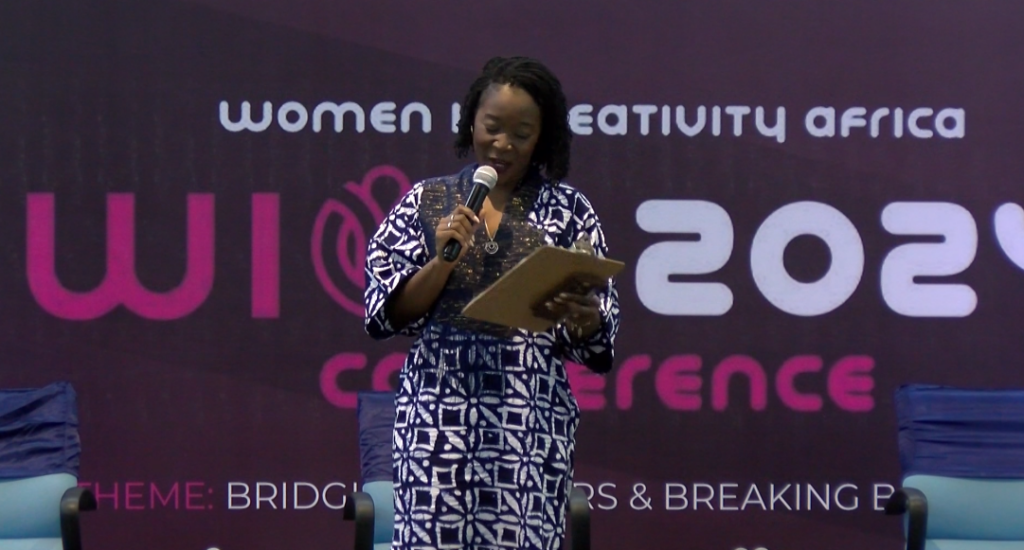
Speaking at the ceremony, the CEO and Co-founder of the WICA Foundation, Sandra Oquaye, detailed the goals of the foundation and emphasized the significance of engaging in pertinent discussions in order to empower aspiring female creatives.

“As we come together to share insights, forge new collaborations, and confront pressing challenges, I am confident that this conference will serve as a vital platform for innovation and progress. Creativity is a universal force that transcends borders, languages, and backgrounds.
"Yet, systemic barriers have disproportionately impacted women of colour in creative professions in Africa and beyond. The WICA Foundation seeks to nurture, empower and celebrate the resilience, talent, and innovation of creative African women, serving as a catalyst for transformative change in their lives and careers”, she enumerated.
Rev. Angela Carmen Appiah, the first female president of the Institute of Directors-Ghana (IoD-GH), delivered the keynote address at the event. She underscored the indispensable role women play in society.
“I am very passionate about speaking to women, because I find that usually, women are socially misguided to forget who they really are. We are problem-solvers. That is why even in governance circles, there is now conversation, not about being equal, but about board parity. Our lenses were created to see things, to smell things, and to feel things differently, and that is why I couldn’t be at a better place”, she expressed.
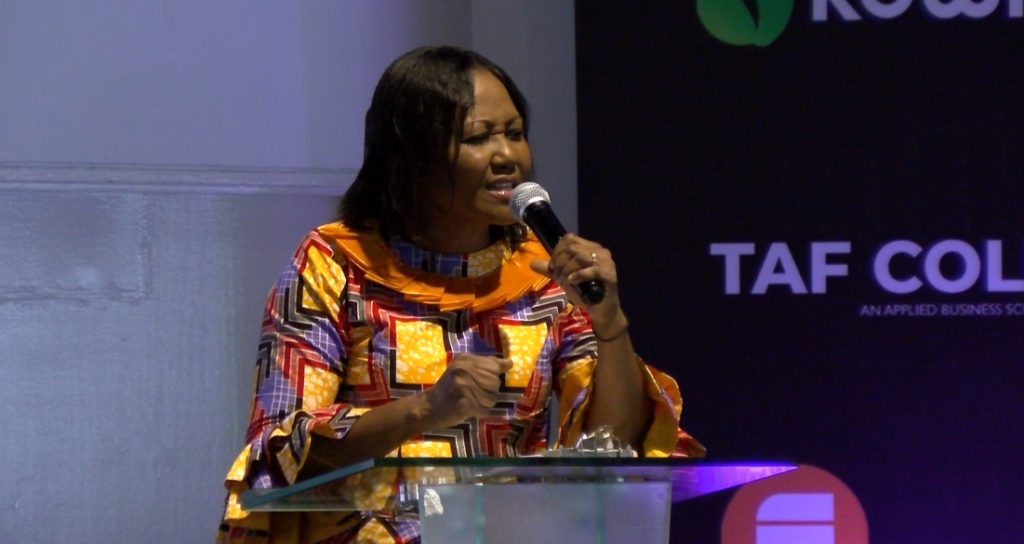
The first female president of the IoD-GH attributed her topmost position in a male-dominated organization to her acceptance of who she was as a person.
"I am not there to rub shoulders, but to bring my value and my unique skills; what God gave me that is different and unique to a man. If we learn to do this properly, you will get all the energies of the man aligning with yours, and you will solve problems. Men don’t give birth. It is women who give birth, and they nurture. That is why Kwegyir Aggrey of blessed memory in his wisdom said that if you educate a man, you educate an individual. But if you educate a woman, you educate a whole nation” she shared.
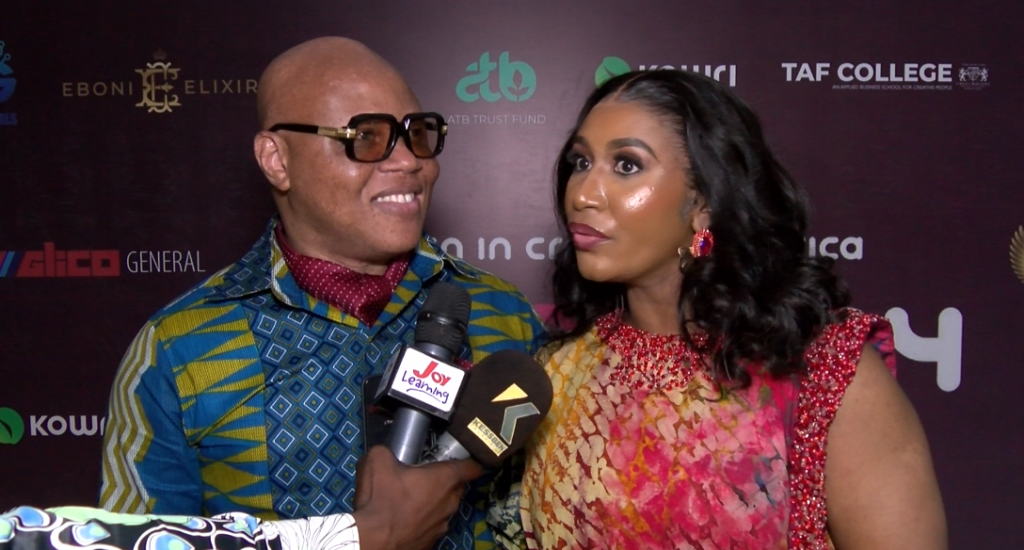
In response to a question from a patron regarding pursuing careers usually perceived to be “men’s jobs”, Sharon Dede Padi, Painter and CEO of Padiki Art Gallery, shared her experience working as a professional architect and construction manager.
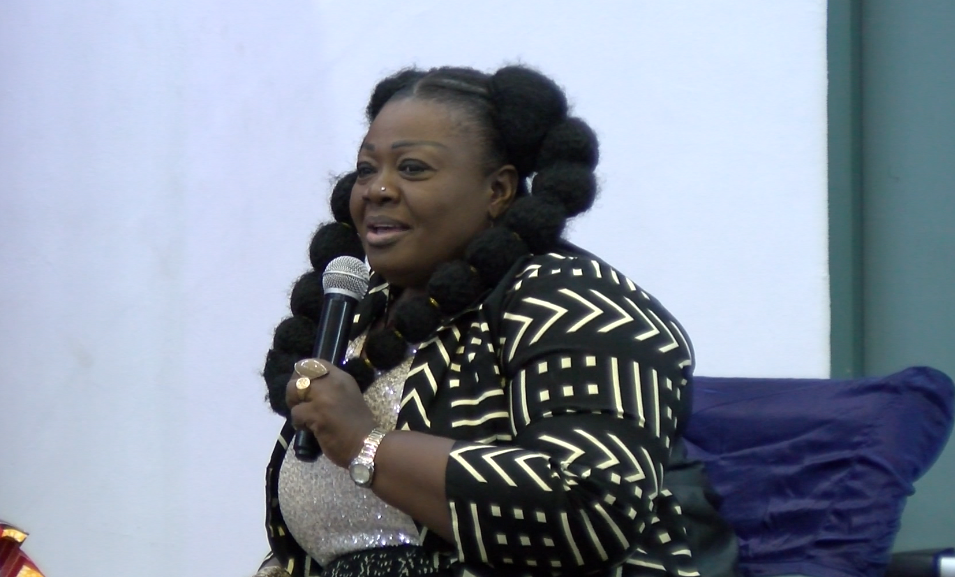
"The construction and architecture I’m doing, yes, it looks like a man’s job, but that is something that belongs to ancient times. In this day and age, I don’t think there is any job that is classified as a “man’s job”. Apart from just a few things, anything the men are doing, we are being pushed to do as well. So never have it in mind that something is a “man’s job”. I think that once it is something you love, and it is something that you want to do, you should go ahead and do it”, she said.
Renowned Ghanaian musician and multi-hyphenate, Akosua Agyapong, also provided a response to a question about to how to deal with parents who are opposed to one’s pursuit of a career in the creative arts.
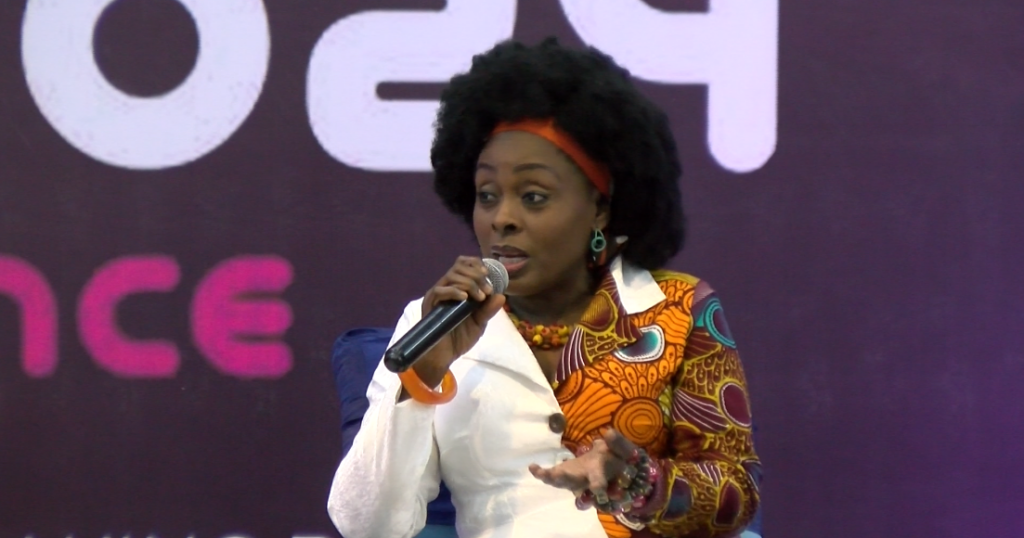
She stressed the utmost importance of finding a mentor and the art of being proactive.
“When I first mentioned that I wanted to pursue a career in the creative arts, my mom was being very difficult. She was insisting that I pursued a course in computing, and at the time, computers were an emerging concept. So I went to NCR, demanded the fastest computing course I could offer, they gave me the one-year program, that is the Word processing, and I went ahead to do it.
"Even upon completion, she was still unwavering in her decision to allow me pursue music. So I decided to look for somebody that was doing what I wanted to do, and somebody my mom really looked up to. I found that person in Nana Kwame Ampedu, may his soul rest in peace, and because of the immense respect and admiration she had for him, she allowed me to pursue a career in music”, she divulged.

The WICA foundation, whose headline sponsors are the Anwia Teleku-Bokazo (ATB) Trust Fund and the African Freelancers’ (TAF) College, aspire to offer fifty (50) tuition-free scholarships to women in the creative industry yearly.
Speaking at the event, the Board Chairman of the ATB Trust Fund, Mark Addo, emphasized the Trust’s commitment to pioneering various developmental projects in the country.
“We do a lot of things. We’ve done a lot of projects and funded numerous infrastructure including bridges, reticulated water supply, kindergarten structures, houses for nurses, midwives, teachers, and all that stuff. However, to me, the most important things that I am really proud of are two; the first one is that we sponsor about 40 needy but brilliant students every year in two different levels of education, and then this year, we added twenty (20) kids at TAF College.
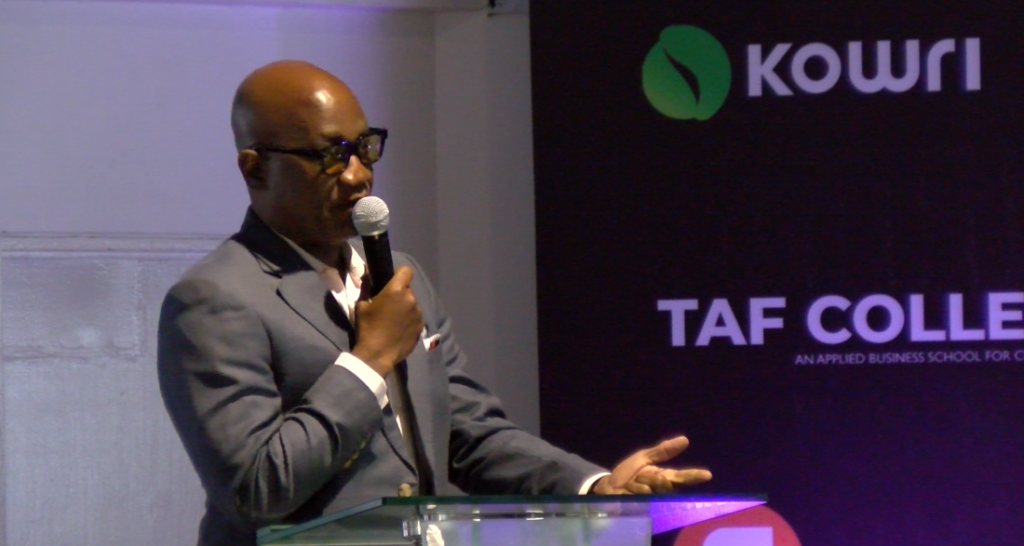
"Out of the 20 that we brought, 14 are ladies. Of the 14, 9 of them are into fashion, 4 into cosmetology, and 1 into real estate. For me, what excites me most is that we brought them all the way from the Western region, rented apartments for them here in Accra, provide them weekly stipends for their upkeep, and the plan is that when they have completed their program, we will provide them with seed money to start their own businesses. When you think about it, this is the least we can do to help. In talking about creativity or women in creativity in Africa, the most important thing for me is for them to go beyond the basics that we have given them”, he shared.
He concluded by encouraging all the current and potential beneficiaries of these programs to adopt the crucial values of diligence, commitment, and hard work in order to go beyond the basics and to discover who they really are.
Latest Stories
-
One of Nigeria’s richest men buried in Saudi Arabia
2 hours -
Liberian president killed in coup gets state funeral after 45 years
2 hours -
Trump calls for US central bank head to quit immediately
2 hours -
Dozens missing after ferry sinks off Bali
2 hours -
Bank of England to redesign banknotes – and wants your help
3 hours -
Trump announces trade deal with Vietnam
3 hours -
Microsoft to cut up to 9,000 jobs as it invests in AI
3 hours -
Tesla deliveries fall for second quarter in a row
3 hours -
Catherine talks candidly of ‘life-changing’ cancer treatment
3 hours -
Ugandan military helicopter catches fire in deadly Somalia crash
4 hours -
Dramatic moment Sean ‘Diddy’ Combs fell to his knees after learning his fate
4 hours -
2026 NPP Primaries: National Council decision biased, unreasonable – Addai-Nimoh
4 hours -
Qualifier Tarvet impresses but cannot shock Alcaraz
5 hours -
Ghana and India to expand cooperation in trade, agriculture, energy – Mahama
5 hours -
Your visit reaffirms our collective commitment to global peace, prosperity – Mahama tells Narendra Modi
5 hours

